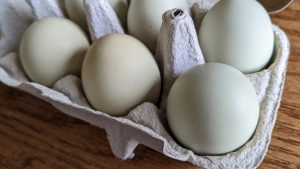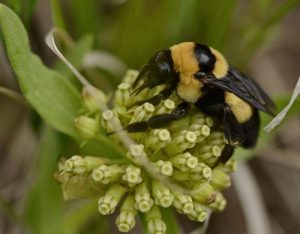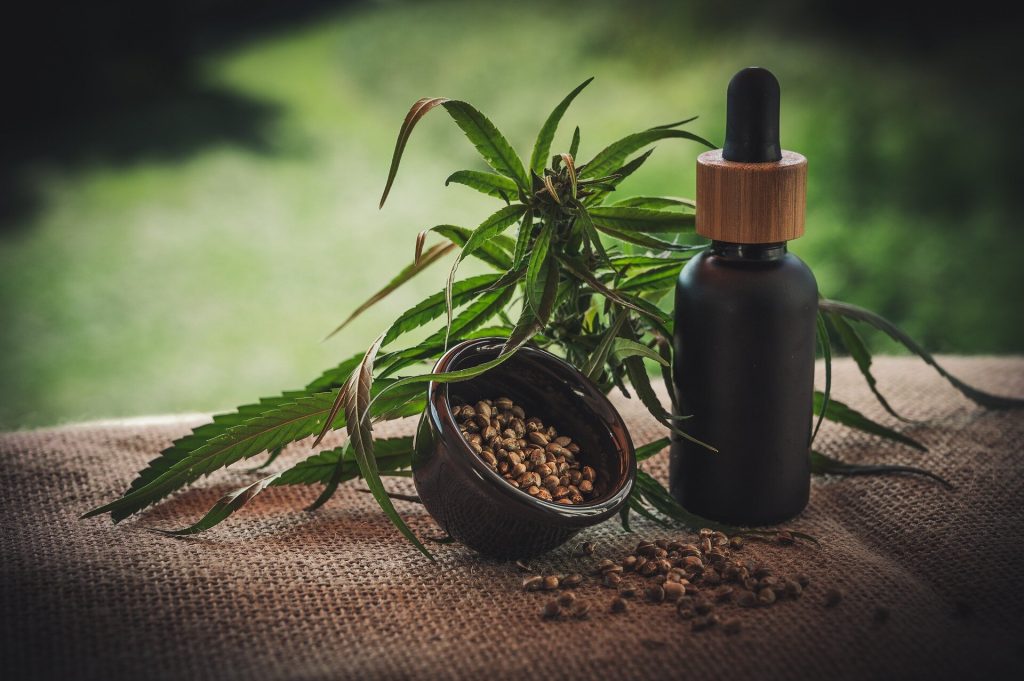CLICK HERE for the latest market quotes from the Iowa Agribusiness Network!
CLICK HERE for the latest market quotes from the Brownfield Ag News Network!
CLICK HERE for the latest market quotes from the Iowa Agribusiness Network!
CLICK HERE for the latest market quotes from the Brownfield Ag News Network!
(Radio Iowa) – Iowa State University dedicated the first phase of the new Veterinary Diagnostic Laboratory (VDL) and celebrated the start of construction on the second phase in a ceremony Thursday. The Dean of the College of Veterinary Medicine, Dan Grooms, talked about the importance of the diagnostic lab which first opened in 1947. “Hands down the Iowa State University’s diagnostic lab is recognized globally as a leader in veterinary diagnostic medicine, especially in support of animal agriculture, but also in the support of companion animal health, wildlife health, as well as public health,” Grooms says.
He says examples of that work are diagnosing COVID-19 during the pandemic, and helping the poultry industry when highly pathogenic avian influenza re-emerged this past year “More importantly their work allowed operations to demonstrate that they were free of the disease so that they could continue to move their products,” he says. Grooms says they’ve responded to the latest outbreak impact cattle. “Highly pathogenic avian influenza has emerged as a potential pathogen in the dairy cattle industry, and I am proud to say that is the people in this laboratory in this College of Veterinary Medicine are at the tip of the spear. Where did we hear that? At the tip of the spear in identifying and understanding this emerging disease threat to animal agriculture,” Grooms says.
He says the lab is also the hub of innovation in animal diagnostic medicine. “Whether it’s developing new diagnostic tests or diagnostic strategy, providing real time surveillance data to monitor disease spread across the state or across the country, or discovering novel pathogens, what separates this diagnostic lab from the most for most others, is the discovery that occurs in parallel to the day to day work,” Groom says.
The construction of the first phase started in March 2021 and it began operating last month. Phase Two construction is scheduled to begin this spring with a projected completion date of 2026. The 141 million dollar project includes state and federal funding along with funding from donors and Iowa State University.
JOHNSTON, Iowa [WOI-TV] — Since January, Iowa Bird Rehabilitation (IBR) says dozens of trumpeter swans have died from lead poisoning. IBR, a nonprofit organization that steps in to rescue, rehabilitate and release wild birds back into the wild, takes in around 2,000 birds yearly. On average, only one or two are trumpeter swans. But over the past few months, the nonprofit has admitted 11 swans into their care. Iowans send tips to IBR of birds they notice may be ill or injured, so the nonprofit can monitor, rescue and bring the birds into their care.
There’s not a clear answer where the lead poisoning these trumpeter swans — and other bird species — has come from, but IBR said some causes could be fishing tackle or leftover fragments of lead shot from waterfowl hunting (before using lead was banned in the late ’80s).
And with the drought that a majority of the state of Iowa is facing right now, receding water levels mean trumpeter swans, with those long necks of theirs, can accidentally consume lead fragments at the bottom of lakes and rivers more easily.
To help omit lead introduction to bodies of water, IBR suggests using lead-free tackle when fishing and lead-free ammunition while hunting. The nonprofit also recommends anyone who sees a bird needing help or exhibiting abnormal behavior to contact them.
(Radio Iowa) – Iowa’s turkey hunting season opens this weekend and it’s estimated up to 35-thousand hunters will participate this year. Nate Carr, an Iowa D-N-R conservation officer for Hardin and Hamilton counties, says the agency’s surveys are showing a healthy population of wild turkeys. “It’s looking like a fairly promising year,” Carr says. “We’ve had three straight years of good hatches, pretty good spring weather, so that’s led to stronger numbers. I think we’re looking at comparable harvests to last year, hopefully, a little bit of an uptick is always good to see.”
The first turkey season runs today (Friday) through Sunday and is for Iowa youth only. The first of the four regular seasons opens Monday and they’ll run through May 12th. “Some things hunters want to make sure they’ve got in their pocket before they go, there’s of course their hunting license, and habitat fee,” Carr says. “So, hunting license if you’re 16 and older is required, habitat for you if you’re ages 16 to 64, and then a valid tag for the season that you’re hunting.”
Carr reminds you, there is a bag limit. “Each hunter can get up to two tags with at least one being for season four,” Carr says. “Shooting hours for turkey is a half hour before sunrise to sunset, so traditionally, hunters get out there well before sunrise to get in with the turkeys before they start gobbling.”
There was a free-for-all on Iowa turkeys in the early 1900s, and between hunting and drastic reductions in habitat, the big birds eventually disappeared from Iowa’s woodlands and forests. Wild turkeys were reintroduced in 1966 and have since expanded their numbers across the entire state. Learn more at www.iowadnr.gov.
(Des Moines, Iowa [Iowa Capital Dispatch]) – The Iowa Senate, Wednesday, reconfirmed the director of the state Department of Natural Resources, despite concerns from some Democrats that she is forced to operate as a puppet of Gov. Kim Reynolds. “Kayla Lyon is just like many of Gov. Reynolds’ other appointees and department heads — she can only do so much,” said Sen. Claire Celsi, D-West Des Moines. “She can only do what the boss tells her to do.”
Lyon, 39, of Ames, was appointed to the post by Reynolds in 2019. Her reconfirmation by the Senate this week was prompted by state law, which requires another confirmation vote for appointees after four years. She leads a department of about 890 full-time and 450 seasonal employees. It is charged with maintaining public areas and wildlife and the enforcement of environmental regulations on businesses, cities, drinking water utilities and livestock operations.
A recent DNR evaluation listed more than 700 water body segments in the state that are impaired, meaning they don’t meet water quality standards for recreation, public water supplies and the protection of aquatic life. A primary contributor to the problem is agriculture, which is also under the purview of the Iowa Department of Agriculture and Land Stewardship. State parks also need about $100 million in repairs, and there is a plan to eliminate all park ranger positions, according to the Cedar Rapids Gazette.

Iowa Department of Natural Resources Director Kayla Lyon, left, addresses a joint meeting of the Natural Resource Commission and the Environmental Protection Commission Jan. 22, 2020 at the Wallace State Office Building. (Photo by Perry Beeman/Iowa Capital Dispatch)
Lyon was a lobbyist for dairy farmers and farmers’ cooperatives before joining state government. Her reconfirmation required two-thirds support, and Lyon cleared that threshold with a 40-9 vote. All of those who voted against confirmation were Democrats, and they were just over half of the Democrats in the chamber.
The DNR’s funding requests have been roughly static in recent years. Sen. Tom Shipley, R-Nodaway, disputed that the DNR is prevented from taking sufficient action to protect the environment, along with Democrats’ claims of “how bad our environment is.” He said the resurgence of certain animal populations, such as bald eagles and whitetail deer, is evidence that conditions are improving. “We have otters in the river we never used to have,” Shipley said. “We have turkeys in the trees that we never used to have. We have all kinds of bobcats.”
Lyon did not address the Democrats’ allegations but told Iowa Capital Dispatch: “It’s been an honor to serve as the director of the Department of Natural Resources. I’m grateful for the opportunity to work alongside DNR staff across the state, and I’m humbled by their extensive knowledge and passion. My appreciation for this job doesn’t stop at the office or in the field with staff; it extends to when I’m spending time enjoying the resources with my family.”
(Des Moines, Iowa via the Iowa Capital Dispatch) – The Iowa House passed a bill Wednesday that would prohibit imitation meat products from being misleadingly labeled as meat — with an amendment prohibiting people from purchasing egg substitutes through food assistance programs. Senate File 2391, approved by a 60-34 vote, establishes fines for businesses that create non-meat products and label them with terms used for butchered meat, if the labels do not also include terms like “fake” or “vegetarian” specifying that they are not traditional meat products.
The bill, largely targeting substitute meat products that are made from insects, lab-grown meat and plants, was approved unanimously by the Senate, but was met with strong resistance during House floor debate Wednesday.
Democrats’ opposition to the bill was not over the labeling of products, lawmakers said, but with a House amendment adding restrictions related to eggs and egg substitutes. In addition to adding labeling requirements and establishing fines for misbranding of “fabricated egg products” as eggs, the amendment also created purchasing restrictions on such products. Iowans could not use food benefits through the Supplemental Nutrition Assistance Program (SNAP) or Special Supplemental Nutrition Program for Women, Infants, and Children (WIC) to purchase egg substitutes.
If egg substitutes are approved as purchasable foods through SNAP or WIC, the legislation would direct the Iowa Department of Health and Human Services to seek a waiver or exemption from having these products be eligible for purchase through the programs in Iowa.

(Photo by Jared Strong/Iowa Capital Dispatch)
Rep. Monica Kurth, D-Davenport, said the amended legislation would take away the rights of people on SNAP and WIC to buy foods that they are currently able to purchase through the program — many of whom, she said, use egg substitutes due to allergies or other health concerns. She said egg allergies among children are “not uncommon,” and that egg substitutes are often the only available means to replace them. The bill’s floor manager Rep. Heather Hora, R-Washington, said the amendment came as the bill was meant to protect Iowa’s livestock producers, and that House lawmakers “felt it would be important to protect Iowa’s egg producers as well.”
Rep. Ako Abdul-Samad, D-Des Moines, said he believed proper food labeling was “imperative,” but he could not support a measure that would specifically restrict people in need of food assistance from purchasing products they need based on medical or dietary restrictions.
In her closing comments, Hora said she understands the concerns about food access, but that the SNAP and WIC restrictions are related to labeling these products as related to eggs. The bill goes back to the Senate for consideration of the amendment.

Xerces Society photo
(Radio Iowa) – A bill that’s passed the Iowa Senate would block lawsuits against farm chemical companies based on how the products are labeled. It means the companies couldn’t be sued for failing to warn of potential health risks if product labels meet federal guidelines.
“Iowa feeds the world and we need partners in that who aren’t constantly under threat of lawsuit for following the very laws governing the ways they do business,” Senate President Amy Sinclair, a Republican from Allerton, said.
In February a federal appeals court refused to dismiss a lawsuit claiming Roundup causes cancer and the CEO of Bayer, the company that produces Roundup, recently told investors lawsuits are a huge burden for the company. Senator Jeff Edler, a Republican from State Center, said the costs of Bayer’s legal predicament are passed along to farmers.
“We’re dealing with billions of dollars of lawsuits,” Edler said. “…The price of Roundup has gone up exponentially because of these lawsuits.”
Thirty Republican Senators voted for the bill. Four other Republicans joined Democrats in the Senate in voting against it. Senator Molly Donahue, a Democrat from Cedar Rapids, said the legislature should be looking out for farmers.
“The people of Iowa should matter more than the corporations and whatever funding they’re pouring into the state to get this bill passed,” Donahue said.
Senator Janice Weiner, a Democrat from Iowa City, said the legislature should be focused on responding to the fact Iowa has the fastest rising cancer rate in the country.
“What we should not be doing is taking away options from Iowans who fall ill,” Weiner said.
A key lawmaker in the HOUSE says the bill could soon come up for a vote in a House committee. Similar legislation has been introduced in Missouri and Idaho, but Idaho’s Senate rejected the bill in February.
(Radio Iowa) – There are likely to be new limits on how much T-H-C from hemp may be legally added to food or drinks sold in Iowa. A bill that’s passed the Iowa House and Senate closes what bill backers say are loopholes in a 2020 law that made it legal to produce, sell and consume hemp in Iowa. Senator Dan Dawson, a Republican from Council Bluffs, says the bill lays out desperately needed regulations to prevent highly-intoxicating products from being sold.
“To not only protect the industry, but also to protect the consumers who might indulge in these products,” Dawson says. The bill also bars businesses from selling hemp-infused “consumables” like drinks and gummies to anyone under the age of 21. Dawson says some hemp-infused consumables being sold in Iowa have really high levels of T-H-C — and seem to be competing with state licensed medical marijuana businesses.
“That program starts at a 4.5 milligram THC usage,” Dawson says. “The Iowa Hemp Act, or the program that we’re talking about here today, needs to be at a milligram usage that’s less than our Medical Cannabidiol program, otherwise the lines are blurred.” Senator Tom Shipley, a Republican from Nodaway, says four years ago when he worked on the law that made it legal to sell hemp in Iowa, he had an inkling people with nefarious motives would exploit it.
“Some people could find an angle to around things and do things that are not good for Iowans,” Shipley said. The House approved the bill with new regulations for hemp-infused products last month.
The Senate approved the bill today (Tuesday) and sent it to the governor.